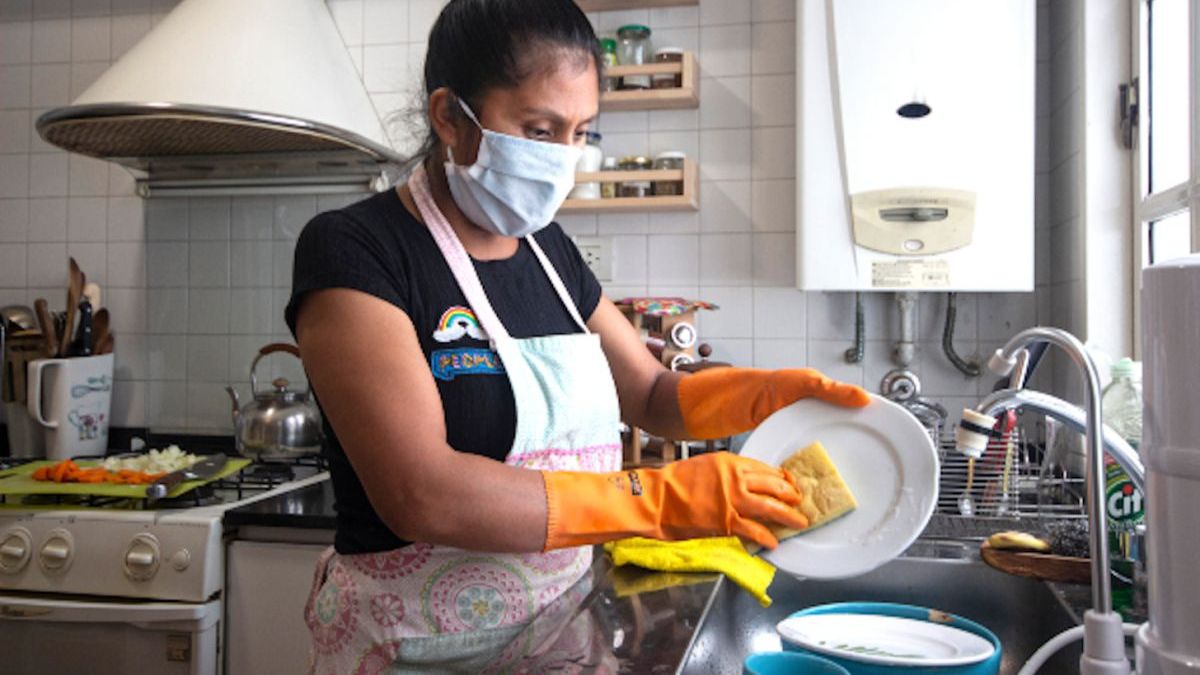During a meeting in the National Library, representatives of the ILO and the Union of Auxiliary Personnel of Private Houses (UPACP)of the Casa de la Repúburta Amazato Union of the Argentine Republic (Sacra) and of Labor Court for private houses staffThey announced a survey about the situation that are going through hundreds of thousands of employees throughout the country.
Diana Edith García, Director of the Court, said that one of the most relevant causes of this problem arises from the “ignorance” of many employers on how to proceed in the process that is needed to be able to formalize your employees.
“In this type of jobs There is an affective, familiar degree. Then, the employer and the worker have another type of link and, sometimes, that same affectivity is what leads to lack of registration. When the conflict comes to us, it already comes to us with a employment relationship that has not been registered in its entirety or in part. When we investigate a bit in that issue, it has to do with which many people do not know how to proceed with a record. I think it takes more diffusion. I refer specifically to employers, who are the ones who do not know how to proceed, “Garcia said.
On the other hand, he explained what part of That population that hires domestic personnel are older adults, often sick who, before their need, “try to alleviate what they are missing and do not go out to look for help to proceed to a record”because they cannot move from their homes or do not have the handling or the tools to make the corresponding registration: “Many of them do not even know how to handle a computer to say, I can register my employee no matter how much they want it,” he added.
Another conflicts that also observe from the court is that “Part of that informality comes from migrant workers”that they take this activity as their first work in our country. “
For Garcia, “There is no intentional evil in the employer” When it does not proceed to the registration because, in fact, another phase of the studies they could do is that, within the employers, there is a greater population of middle, medium and high class and stressed that “those that are of the highest economic level in general have them registered” because they have the “incentive” that there is “a discount on the profit tax”, however, in the middle class, which are also the ones that also go to work and “need to work and” need to take care of them. They don’t get to that.
“Once we determine that the relationship has not been registered or has been in poor mode, we have to intervention with our sentence to the Ark so that they take the intervention of their competence. We know that these contributions, which eventually are collected in the previous trial, will not go to the worker. Directly, it will be a trial against which he was his employer, but for the State Legislative from that place too, “he concluded.
Informal work in Argentina: what is the regional comparison
According to forlac 2.0 data (the ILO formalization strategy in Latin America and the Caribbean in the 2024-2030 period), the Average youth informality rate in Latin America and the Caribbean is 54.4%. Thus, half of the people employed in the region do not have access to decent work in the formal economy.
In Argentina, using the same age range (15 to 24 years), the figure rises to 68%. “This shows that the problem in the country requires attention, even compared to other economies in the region that also face structural challenges,” said the specialist.
In parallel, the National Institute of Statistics and Census (INDEC) He revealed that Employment rate reached 45.7% in the fourth quarter within 31 urban agglomerates.
Of them, the 42% workers do not have labor rightswhile the 57.8% are under formality parameters. It is a slight rise compared to the same period last year (41.4%).
To have an x -ray of what would be nationally, if it was extrapolated to the total population, this would imply that 21,509,912 workers, some 9,034,163 would be in informality conditions and 12,475,749 remaining would correspond to the formal.
Source: Ambito




